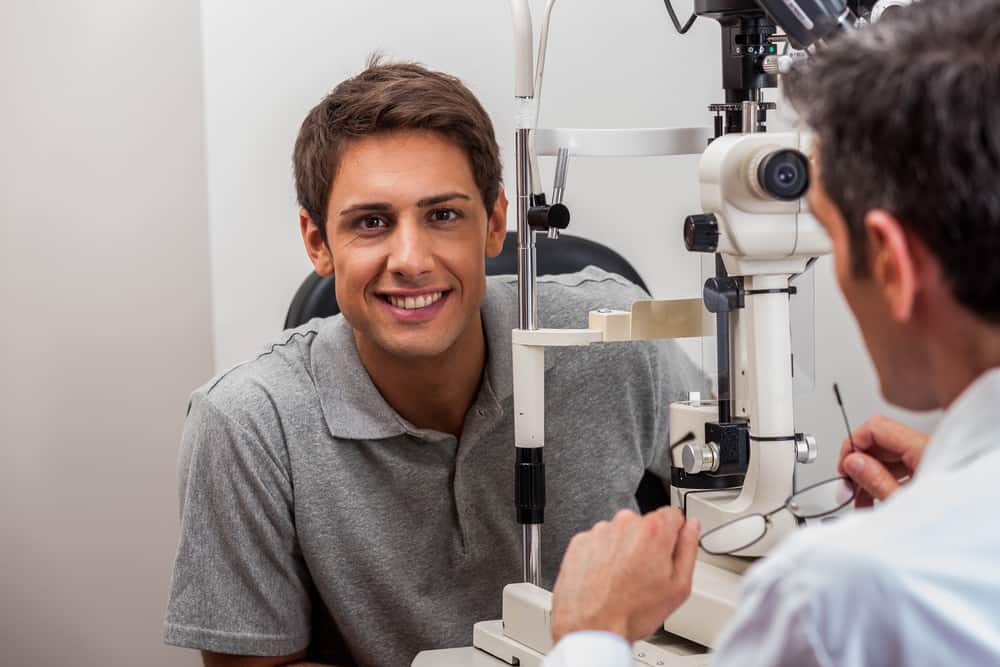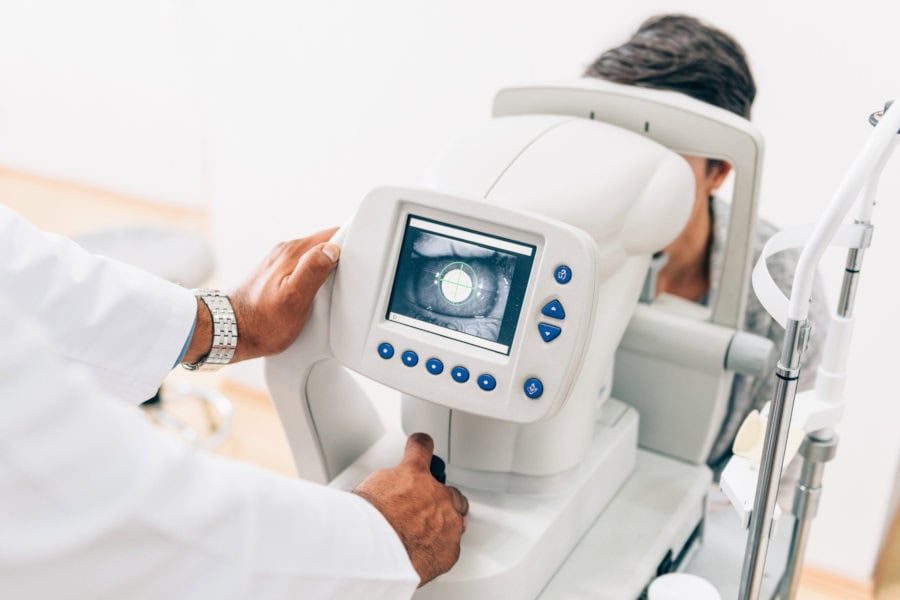It’s important to have regular eye exams because they can help detect vision problems, assess your risk for certain eye diseases, and monitor any changes in your eyes. A thorough evaluation will include answering questions about your medical history and symptoms, if any. The doctor will also check your eyesight and the health of your eyes. Here’s a detailed look at what you can expect during a typical eye exam.
Why Is It Important to Have Your Eyes Tested?

Eye tests are important for people of all ages. They help to detect vision problems and assess overall eye health. During an eye test, your optometrist will ask you to read an eye chart to determine how well you see at various distances. They will also examine your eyes using bright light and special magnifying lenses. These tests help your doctor detect refractive errors such as nearsightedness, farsightedness, or astigmatism. They may also help diagnose more serious conditions such as cataracts, glaucoma, diabetic retinopathy, and macular degeneration. Depending on your age, health history, and symptoms, you may need to have your eyes tested more or less frequently.
Vision Screening vs. Comprehensive Eye Exam
A vision screening is usually just a quick visual check of your eyesight. The test will likely involve reading an eye chart from 20 feet away to determine if you have 20/20 vision or not. If you don’t have 20/20 vision, you may be given a basic prescription for corrective lenses. A comprehensive eye examination is much more thorough. During this exam, the optometrist will not only test your vision, but they’ll also evaluate your overall eye health. This evaluation will include checking for common eye diseases such as glaucoma or macular degeneration. The optometrist will also perform tests to see how well your eyes work together and how well they adjust to changes in light. They will also check your peripheral vision.
How Often Should You Have an Eye Examination
Eye exams are important for maintaining good vision and identifying potential problems early. Most people should get their eyes tested every one to two years. Children should have their eyes tested at least once between the ages of three and five and again before starting school. Adults over 40 should have their eyes checked every two years. If you have a family history of certain eye conditions or are at risk of developing them, you may need to be tested more often. The importance of regular eye exams goes beyond just maintaining good vision. These exams can help catch vision problems early on before they become more severe. Additionally, they can detect common health problems such as diabetes, high blood pressure, and even some forms of cancer. Regular eye exams ensure you see as clearly as possible and catch any developing problems before they worsen.
What to Expect During a General Eye Exam

During a comprehensive dilated eye exam, your optometrist will:
- Ask about any vision problem you’ve been experiencing and your medical history. Be sure to mention if you have any family history of eye disease.
- Test how well you see at various distances (visual acuity). To do this, your optometrist will ask you to read an eye chart.
- Check how well you see colour and how your eyes react to light and movement.
- Measure the pressure inside your eyes (intraocular pressure). This test helps determine whether you have glaucoma, an increase in intraocular pressure that can damage the optic nerve and lead to vision loss.
- Inspect the front part of each eye for signs of disease, such as redness or swelling.
- Examine the back of each eye (retina) for signs of disease by shining a light into each eye while dilating the pupils with drops.
- Take pictures of the retina (fundus photography). These pictures can be used to monitor changes in the retina over time or to evaluate retinal conditions such as macular degeneration or diabetic retinopathy.
- Check for cataracts, cloudy areas in the eye’s lens that can cause blurred vision, by shining a light into each eye while dilating the pupils with eye drops.
- Check for signs of age-related macular degeneration (AMD) by using an instrument called an Amsler grid. This test can help detect early changes in the retina caused by AMD even before symptoms begin.
- Evaluate your eyes as a team to ensure they work together properly (binocular vision testing).
- Determine whether corrective lenses are needed and, if so, what type would best suit your needs.
- Perform additional tests based on results from other tests or if you have specific concerns or symptoms.
- Schedule a follow-up visit if more testing is needed or if you have been diagnosed with an eye condition that needs treatment.
- Answer any questions about the results of your tests or about caring for your eyes.
- Provide information on vision resources, such as low-vision rehabilitation services, support groups, or classes on coping with vision loss.
- Refer you to a specialist, if necessary.
- Write a prescription for glasses or to wear contact lenses, if needed.
How Long Does a General Eye Test Take?

A comprehensive eye examination can take anywhere from 30 to 45 minutes. The testing time will depend on various factors, including the patient’s age, health history, and whether or not they are experiencing any vision problems. If the patient is healthy and has no pre-existing eye conditions, the examination may not take more than half an hour. However, the examination could take longer if the patient has health conditions. Additionally, if the patient needs eyeglasses, they should give themselves enough time to choose their frames after the examination. By considering these factors, patients can better understand how long their eye examination will take.
Final Thoughts
Eye exams are important not only for people with vision problems but also for those without noticeable symptoms. Eye examinations are important for people of all ages. Not only can they help us determine if you require vision correction, but they also enable us to detect early symptoms of eye diseases such as glaucoma, macular degeneration, and cataracts. Early detection and treatment of these conditions are essential to maintaining good vision, so schedule an appointment with your eye doctor today. If you have any questions about our eye examination process or would like to schedule an appointment, please don’t hesitate to call us!
About Beyond Eye Care
At Beyond Eyecare, we pride ourselves on offering a comprehensive general eye examination. We take a holistic approach to optometry, seeing every patient as a whole and not just treating a symptom. Our goal is to provide each and every one of our patients with the clear vision needed to enjoy their lifestyle, career and hobbies. We believe everyone deserves to have a clear vision and are dedicated to providing our patients with the best possible care.
If you need an eye exam or if you have any questions about your vision, please don’t hesitate to contact us.

Therapeutical endorsement





